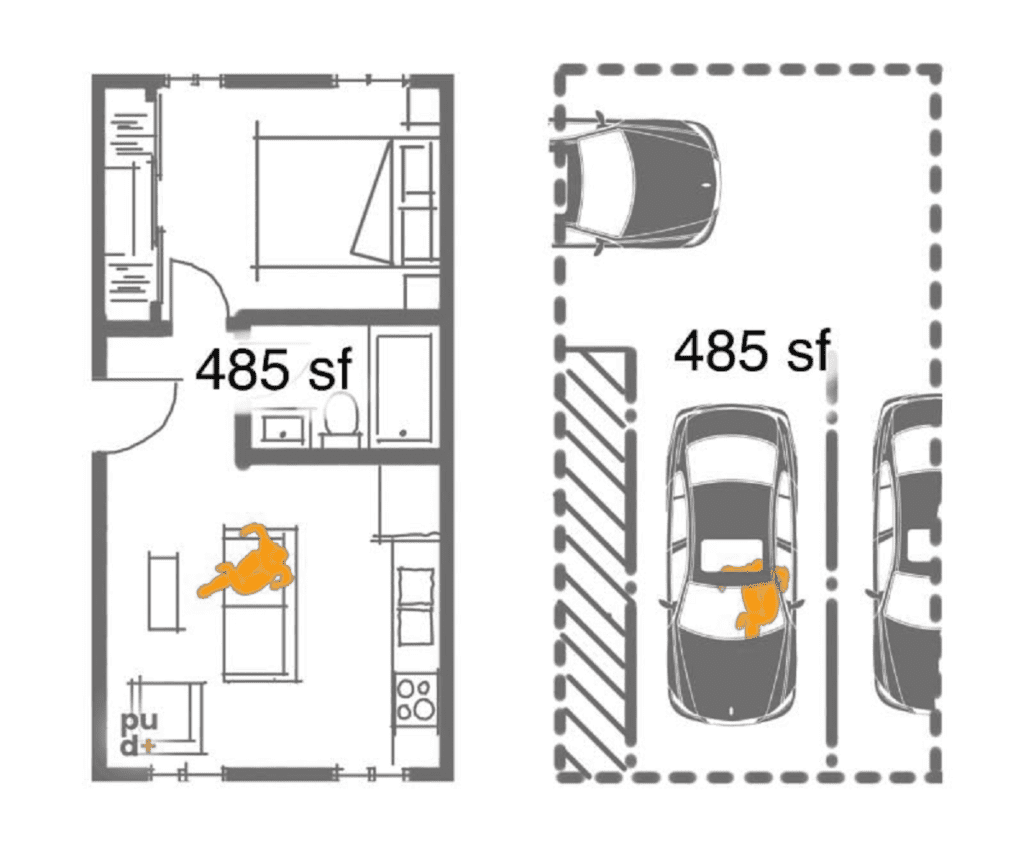The Livable Communities Initiative Looked at Through the Lens of Equity
By Ed Mendoza, Dr. Tunette Powell and Lindsay Sturman
The Livable Communities Initiative (LCI) is a plan to build mixed-income and affordable housing that is attainable for all Angelenos – nurses, cooks, teachers, seniors, students, the undocumented, refugees. Our plan focuses on building homes along under-utilized commercial corridors, while simultaneously transforming those same corridors to be livable, accessible, equitable and healthy, where people can safely walk and bike to jobs, transit, and their daily and weekly needs.
The LCI is a grassroots movement originally designed by a group of architects, urbanists, city planners, activists, faith leaders, educators, professors in the field, and experts in mobility and affordable housing construction, pre-fab tech, Vienna-style social housing, and diversity, equity and inclusion. The plan is intentionally iterated for improvement, and we look at all aspects through the lens of equity and anti-racism.
We embrace a vision of a more livable city – with hundreds of new parks and parklets, tree canopies, and promenades that serve all Angelenos. Our vision includes a city where rents fall dramatically, and where owning a car is not a necessity to live a safe, convenient, dignified life.
The LCI is a community-driven opt-in program open to any neighborhood that wants it, with a particular focus on neighborhoods near high-quality transit stops. Much of our organizing efforts have centered on building support for new housing in high-opportunity neighborhoods on the Westside that have not built their fair share of housing over the past several decades. One of our primary goals is to galvanize mixed-income communities, Community Land Trusts, and equitable access to amenities like jobs, high-performing schools, and green space. To do so, we must build housing that is affordable in neighborhoods that are historically white, and racially and socioeconomically segregated.
A group of community leaders in South L.A. also have embraced the LCI as a way to bring safer street infrastructure, walkability, climate justice, more affordable housing, and better amenities to their historically under-served neighborhoods, where skyrocketing housing prices are causing displacement. National DEI expert Dr. Tunette Powell, longtime Leimert Park resident Alberta Brinson Moore, educator and Pastor, Dr. Peter Watts, Jr. are leading efforts to champion LCI communities in South LA neighborhoods near the new Metro K line. Public investments in safe street infrastructure should always be prioritized in communities that face a disproportionate share of vehicular violence.
Displacement and Gentrification
From the beginning, the LCI was designed to address displacement and gentrification and to build more housing in neighborhoods with a history of exclusionary zoning, which have not built their fair share – namely, the Westside, Central LA (Hollywood/Mid-City/Larchmont), and the Valley – which together are short about 400,000 units. The policy is called the Equitable Distribution of Affordable Housing, and it was passed by the LA City Council.
Displacement and gentrification are very complex issues that are both racial and racializing. As prices rise, people from higher socioeconomic backgrounds are priced out of high-opportunity neighborhoods, they move to communities with more affordable housing options, and this often means pushing out long-time residents, namely Black, Brown and low-income residents who have been historically and contemporarily marginalized.
In recent years, there have been a number of strategies introduced to mitigate displacement. Policies where displaced tenants are given the right to return once a project is finished, or given the option of a cash pay-out if displaced. However, recognizing that despite best intentions, these strategies aren’t always ideal for displaced tenants, the LCI will avoid the issue of displacement in its entirety by limiting the program to commercial sites where there is currently no existing housing. The LCI is also working to create a plan to protect small businesses both during and after construction.
READ MORE
Ed Mendoza is a former city planner and the Policy Director of the LCI. Dr. Tunette Powell is a Disruptor, Freedom Dreamer, and Diversity, Equity and Inclusion Advisor. Lindsay Sturman is the co-host of the podcast “Bike Talk”. They are co-founders of the Livable Communities Initiative.
